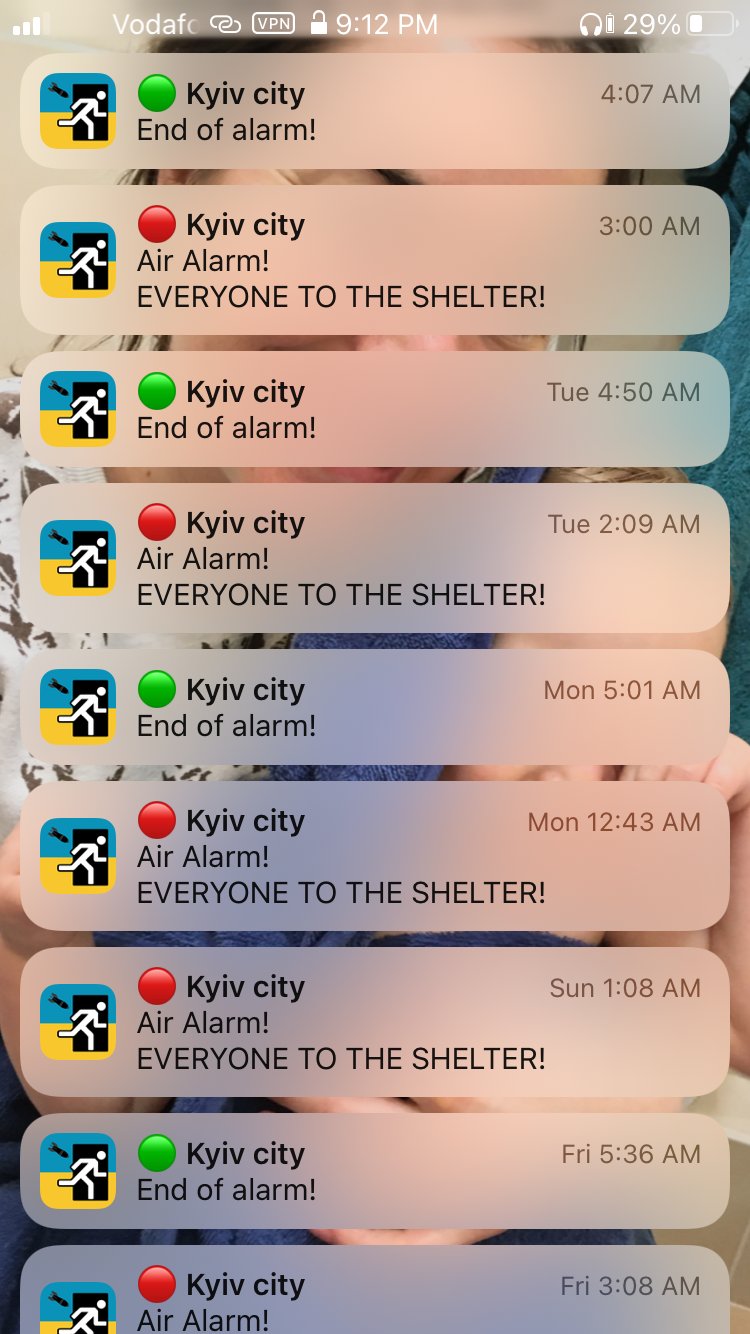I have been in Ukraine during many air raid alerts and have been close enough to hear and feel a number of explosions (primarily Russian missile being shot out of the sky), but, strangely, I haven’t actually been around Ukrainians throughout the duration of an air raid until this past week.
I had gone to a small warehouse store where I buy nails for my framing gun. In the middle of placing my order, everyone’s phones started dinging. Kyiv was under an air raid alert. The young man who was helping me just kept working on his computer, but his colleague immediately stood up, looking at her phone and started wondering out loud if we should go to a shelter or if we should stay put. Within a few seconds another worker came in from outside, and a lady came down the stairs. They were all on their phones.
“Ballistic missiles.” said the man
“… heading towards the Kyiv area.” Said the woman who had just come down the stairs.
There was a moment when everyone let that sink in. Then everyone was back on their phones. The initial shock and question of whether we should go find shelter or just stay and wait it out seemed to have silently been settled.
My order input and I paid for the nails, but we learned that the guys who work in the warehouse had left as soon as the alert went off.
“It seems like it is heading for the left bank [of the Dnipro River that splits Kyiv].” We were on the right bank … but Janna and Oliver were over on the left bank.
I opted to stay and wait, hoping that the attack wouldn’t last all day. I needed those nails before Monday morning, and if they shipped them to me, they may not arrive in time.
“They could be here in as little as two minutes.” Referring to the missiles.
“Looks like they are headed for a part of the city on the right bank … but not close to here.”
At this point, I was just waiting, so I had sat down and was just listening to the conversation they had amongst themselves. It was fascinating to watch the sharing of information. Aside from those first few seconds of frenetic energy, everyone had been pretty calm while discussing where a missile might hit in the city that they lived in.
I have felt this same thing many times. When the siren goes off, there is a voice in my head that immediately screams, “You might die!” That is followed quickly by another calmer voice that says, “Maybe … but probably not.”
The difference between when I have gone through air raids alone and with this group of Ukrainians was how dialed in they were as to what was happening. When I’m on my own, I just sit and wait, or keep driving, but I don’t know anything other than that maybe missiles have been launched. But Ukrainians have built up information networks to spread as much up to the second details as they can offer. Its like the weather, you can’t predict 100%, but it helps people to know something.
As I sat in the middle of this group of regular Ukrainians, I felt admiration for the nerve that I saw on display. I also felt anger. These people sold building tools, and yet, they were spending over an hour on this day pausing their work and trying to track missiles that had been launched by Russian forces. Missiles that could cause a lot of destruction. The chances of being killed by a missile strike in Ukraine are very small. But … almost everyday, there are civilians that are killed by Russian aerial attacks.

Comments
Post a Comment